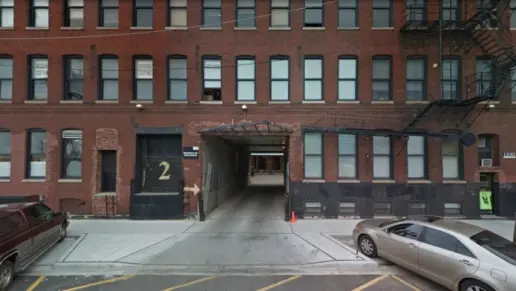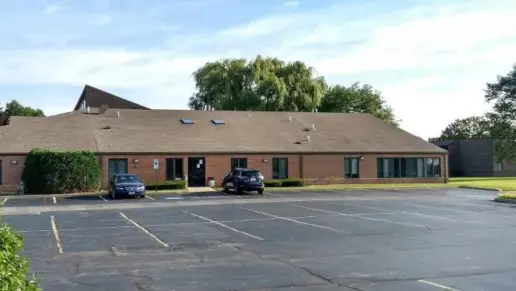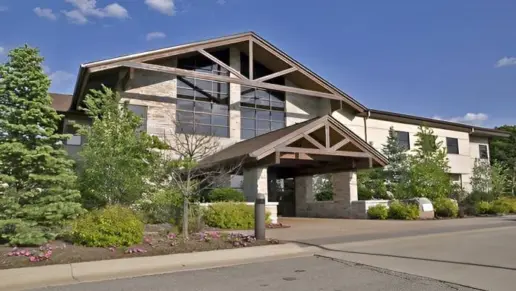About Timberline Knolls Residential Treatment Center
Timberline Knolls Residential Treatment Center substance abuse and behavioral health recovery program in Orland Park, Illinois. Their individualized treatment plans encourage clients to participate actively in their recovery planning. They serve adult women clients. This facility treats a broad range of mood, eating, and trauma disorders alongside their addiction treatments. They also provide a Christian faith based treatment program for clients seeking a spiritual component to recovery. Services offered include:
Inpatient care sees clients living at the facility for the duration of the program. The residence is a secure and welcoming environment where staff are present 24 hours daily to support clients as needed. Clients follow a daily schedule of recovery activities, including individual therapy, family therapy, group education and therapy sessions, coping skills development, and recreational activities and outings. Clients help develop their treatment plans.
PHP, more commonly known as a day program, is an intensive outpatient form of treatment where clients spend their day in treatment and return to their residences at night. PHP follows a highly structured schedule of therapies, education, and support services.
IOP serves as a step down from the inpatient and PHP programs. Clients visit the facility on a recurring schedule to participate in individual, group, and family therapy while continuing to live at home. IOP is available on a flexible schedule to better accommodate clients’ needs.
Latest Reviews
Gallery


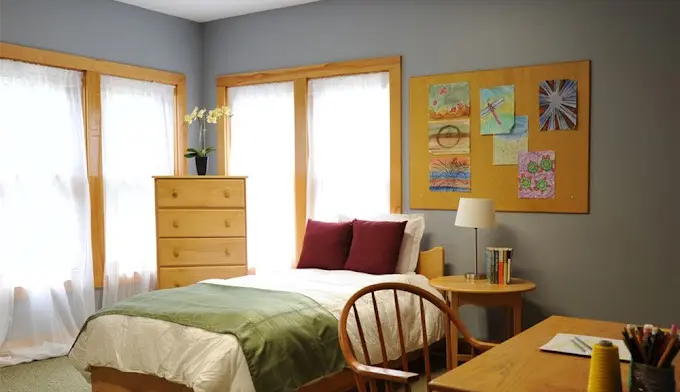
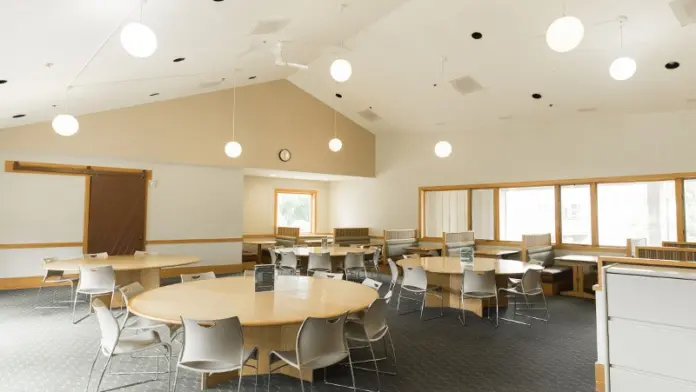
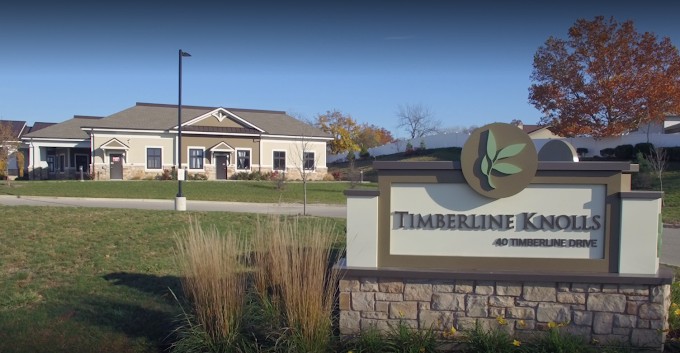
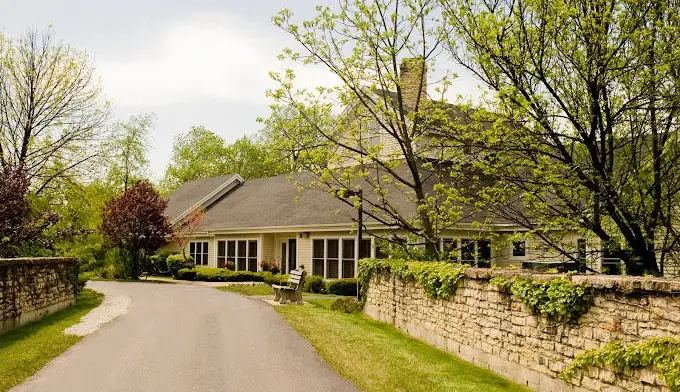
Location
Accepted Insurance



Other Forms of Payment
Private insurance refers to any kind of healthcare coverage that isn't from the state or federal government. This includes individual and family plans offered by an employer or purchased from the Insurance Marketplace. Every plan will have different requirements and out of pocket costs so be sure to get the full details before you start treatment.
Self-pay involves paying for treatment out of your own pocket. You can use savings or credit, get a personal loan, or receive help from family and friends to fund your treatment. If you don't have insurance or your insurance plan doesn't cover a specific program, self-pay can help ensure you still get the care you need.
Military members, veterans, and eligible dependents have access to specific insurance programs that help them get the care they need. TRICARE and VA insurance can help you access low cost or no cost addiction and mental health treatment. Programs that accept military insurance often have targeted treatment focused on the unique challenges military members, veterans, and their families face.
Addiction Treatments
Levels of Care
Treatments
A combined mental health and substance abuse rehab has the staff and resources available to handle individuals with both mental health and substance abuse issues. It can be challenging to determine where a specific symptom stems from (a mental health issue or an issue related to substance abuse), so mental health and substance abuse professionals are helpful in detangling symptoms and keeping treatment on track.
Programs





Clinical Services
Cognitive Behavioral Therapy (CBT) is a therapy modality that focuses on the relationship between one's thoughts, feelings, and behaviors. It is used to establish and allow for healthy responses to thoughts and feelings (instead of unhealthy responses, like using drugs or alcohol). CBT has been proven effective for recovering addicts of all kinds, and is used to strengthen a patient's own self-awareness and ability to self-regulate. CBT allows individuals to monitor their own emotional state, become more adept at communicating with others, and manage stress without needing to engage in substance abuse.
Expressive therapy has been clinically proven to promote healing and recovery, in addition to providing a needed creative outlet for women during treatment, and after they return to their home environment. Their expressive therapy program includes a variety of outlets a woman can select based on her personal interests: art therapy in a historical art studio that supports painting, sculpture and other medias, dance/movement therapy, empowerment group (experiential trauma recovery), self-defense in their on-site fitness facility, outdoor recreation such as volleyball, basketball, soccer, badminton or gardening on their 43 acre campus.
They integrate the use of DBT (Dialectical Behavior Therapy) skills, clinically proven to be effective in working with trauma, along with experiential therapies to help women with unresolved trauma learn to release feelings of shame, fear and anxiety in a constructive way. This awareness reassures them of their ability to make recovery-oriented choices in the future when they are confronted with reminders of trauma. The skills learned in DBT reduce a woman’s need to rely on her symptoms for self-soothing and instead provide growth-enhancing alternatives.
Experiential therapy is a form of therapy in which clients are encouraged to surface and work through subconscious issues by engaging in real-time experiences. Experiential therapy departs from traditional talk therapy by involving the body, and having clients engage in activities, movements, and physical and emotional expression. This can involve role-play or using props (which can include other people). Experiential therapy can help people process trauma, memories, and emotion quickly, deeply, and in a lasting fashion, leading to substantial and impactful healing.
EMDR is a therapeutic modality originally developed to help process trauma. In an EMDR session, a patient is prompted to undergo eye movements that mimic those of REM sleep. This is accomplished by watching a therapist's finger move back and forth across, or following a bar of light. The goal is repetitive sets of eye movements that help the brain reprocess memory, which can significantly reduce the intensity of remembered traumatic incidents. Associated memories can heal simultaneously, leaving patients significantly calmer, more stable, and more emotionally relaxed.
Timberline Knolls eating disorder treatment staff also equips a woman’s family to engage in recovery as a family during and after her residential treatment. Alcoholism and drug addiction not only affect the sufferer, but also impact parents, siblings, and her spouse and children. Family therapy focused on the entire family system may help the family to recover themselves from the devastating effects of living with addiction or alcohol abuse. Family members learn how to take care of themselves and also how best to support their loved one in her recovery.
Unlike therapeutic groups run by clinical professionals, peer-led support groups can help substance abusers learn to verbalize feelings and to live free from using alcohol and drugs. Peers give each other encouragement as they share their unique stories in a non-judgmental setting, which can reduce the shame associated with addictive diseases.
IIndividual and/or group psychotherapy sessions help many women suffering with alcohol and abuse to better understand the addictive disease process and alleviate their symptoms. A certified addictions counselor (CADC), psychologist, therapist, social worker, psychiatrist, or eating disorder specialist may conduct individual and group therapy for substance abuse and addiction.
Life skills trainings involve all the skills a person must have in order to function successfully in the world. These include time management, career guidance, money management, and effective communication. Truly successful addiction recovery is based on the ability to not only live substance-free, but to thrive. Life skills teaches the practical necessities of functioning in society, which sets clients up for success in life, and therefore sobriety.
Motivational Interviewing (MI) is a clinical approach to helping people with substance abuse issues and other conditions shift behavior in positive ways. It is more goal-oriented than traditional psychotherapy, as MI counselors directly attempt to get clients to consider making behavioral change (rather than wait for them to come to conclusions themselves). Its primary purpose is to resolve ambivalence and help clients become able to make healthy choices freely.
Nicotine Replacement Therapy (NRT) is a way of getting nicotine into the bloodstream without smoking. It uses products that supply low doses of nicotine to help people stop smoking. The goal of therapy is to cut down on cravings for nicotine and ease the symptoms of nicotine withdrawal.
Nutrition therapy, aka medical nutrition therapy (MNT), is a way of treating physical, emotional, and medical conditions through diet. Specific dietary plans are designed by professional nutritionists or registered dietitians, and patients follow them in order to positively affect their physical and mental health.
Many of the women who come to Timberline Knolls have a history of trauma in addition to the presenting diagnostic problems of substance abuse, anorexia, bulimia, or mood disorders. TK staff is trained to be aware of the impact of trauma on a woman’s life and treatment. They are constantly mindful that each woman has a unique story that influences her emotions in very personal ways. They understand how ordinary interactions can lead to overwhelming emotional responses in women with histories of significant trauma.
Amenities
-
Private Rooms
-
Lakeside
-
Yoga Studio
-
Recreation Room
-
Private Rooms
-
Meditation Room
-
Art Activities
Accreditations

The Joint Commission, formerly known as JCAHO, is a nonprofit organization that accredits rehab organizations and programs. Founded in 1951, the Joint Commision's mission is to improve the quality of patient care and demonstrating the quality of patient care.
Joint Commission Accreditation: Yes
Accreditation Number: 435379

The National Association of Addiction Treatment Providers (NAATP) is a professional association that represents organizations in the field of addiction services. Founded in 1978, NAATP's mission is to advance addiction services and ensure that high-quality addiction treatment is available and accessible.
NAATP Member: Yes
Member ID: 595

The Substance Abuse and Mental Health Services Administration (SAMHSA) is a branch of the U.S. Department of Health and Human Services. Established in 1992 by congress, SAMHSA's mission is to reduce the impact of substance abuse and mental illness on American's communities.
SAMHSA Listed: Yes

State Licenses are permits issued by government agencies that allow rehab organizations to conduct business legally within a certain geographical area. Typically, the kind of program a rehab facility offers, along with its physical location, determines which licenses are required to operate legally.
State License: Illinois
License Number: 105767
Contact Information
40 Timberline Drive
Lemont, IL 60439






